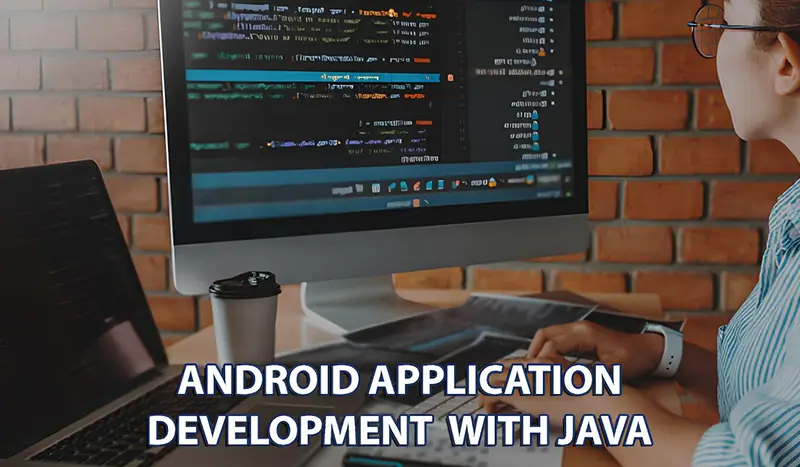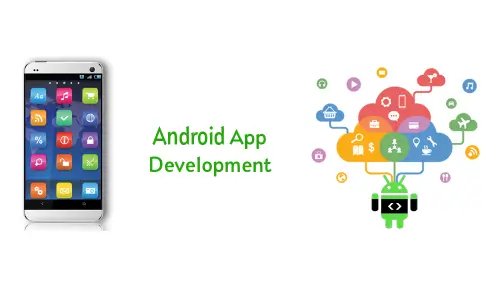Introduction:
Android application development is a new trend and emerging as a market leader in mobile platforms. Android has a greater user base with around 85% of global market shares. The rapid increase in the use of smartphones has raised the demand for flexible Android-based application development. We make dynamic Android Apps that work in high-tech mobile gadgets. Speedier and upgraded portable applications are the attributes of our Android App Development service.
Android App Development in JAVA?
There are a number of ways to create apps for Android devices, but the recommended method for most developers is to write native apps using Java and the Android SDK. Java for Android apps is both similar and quite different from other types of Java applications. Java plays an important role in the development of Android application development because there are multiple reasons such as; Java is a commonly used language and many programmers know it, it can run on a virtual machine (VM) so no need to recompile for different phones, better security, many development tools available for Java, and Java is a known industry language with most phones compatible with it. It has been around for more than two decades and it is still one of the most popular and widely used programming languages worldwide. Java’s popularity and phenomenal growth as the preferred multi-platform programming language became possible thanks to its core features which include:
-
1. Java has been developed as a platform-independent language that can be distributed with virtual missions.
2. Java is an object-oriented language with unmatched flexibility.
3. Java is versatile for integrating different functions and applications.
4. Java guarantees the highest security in various programming and running environments.
4. Java comes packed with a large number of built-in tools and IDEs to secure different applications.
The language has fluent English-like syntax and less mysterious characters. Java has a rich API, XML parsing, database connection, networking, utilities and provides almost everything that a developer can expect. It is also open-source and available free.
Interaction of JAVA and Android Phones
Android has succeeded in keeping JAVA at the forefront in the last couple of years. JAVA gives the best option for the development of mobile applications that are based on Android, as Android consists of its own APIs and JAVA libraries. So, for Android applications, you use android APIs as well as JAVA to write code for Android apps.
These apps are called as native apps, as it is developed by using native tools and libraries. You can also code in other languages as well but you need a framework to convert into a native app for that API. To execute the programming files, Android does not use JVM (JAVA Virtual Machine) but instead uses DVM (Dalvik Virtual Machine), which is not a true JVM. So, to execute the files it has to convert into DEX format and then bundled into Android Package (APK).
For mobile applications, JAVA has specially designed J2ME (JAVA to micro edition). All J2ME applications must have a main class that is derived from a special class called MIDlet. The standard JAVA runtime environment for these devices is provided using (MIDP) Mobile Information Device Profile and Connected Limited Device Configuration (CLDC). To write J2ME applications, you need the JAVA platform micro edition SDK (software development kit) and IDE, which can be Android Studio. But to develop Android application, JAVA MIDlet has to convert into Android apps and for that, tools like J2Android are used. This tool can convert any JAVA MIDlet into Android apps.

JAVA is the best choice for mobile developers working on Android applications because it is convenient and relatively easy to use.
Android Application Development Process
From the app idea to development to deploying the app on the Google Play Store, Oditek handles the entire development lifecycle of your app. Here’s the app development cycle that we follow to develop Android apps.

1. Analysis
We begin with apprehending the defined needs of our clients, their business objectives, and philosophies to ensure our process is in sync with their expectations.
2. Wireframing
Next, we develop a comprehensive app wireframe that delineates the platform details, feature specifications, and feasibility choices.
3. Designing
Here, our adroit team gets down to designing the app with an interactive user interface. Static mockups of different screens are generated to give the client a bright idea of the final look and feel of the app.
4. Development
Closely working with our designers, our programmers and architects toil to deliver robust and reliable applications. Our iterative, agile app development methodologies help us to keep our clients in the loop and rigorously test the product along the way so that there are no hitches in the end.
5. Deployment & Quality assurance
Our powerful testing strategies meticulously cover all aspects of quality to deliver a brilliant product. Consequently, all our deliverables are usable, durable, and inspiring.
6. Support & maintenance
We work closely with our clients to offer complete support and maintenance of the app even after its launch. Additionally, we strive to develop new features with the evolution of your business needs.
CONCLUSION
To conclude, developing an app on the android platform is a value proposition for organizations globally. It helps them address a higher range of audiences and gain immense popularity. The numerous Android development advantages also offer business-friendly features for an added boost in market penetration. As an experienced mobile app development company, OdiTek Solutions can help you build innovative and robust business apps that are future-ready.







